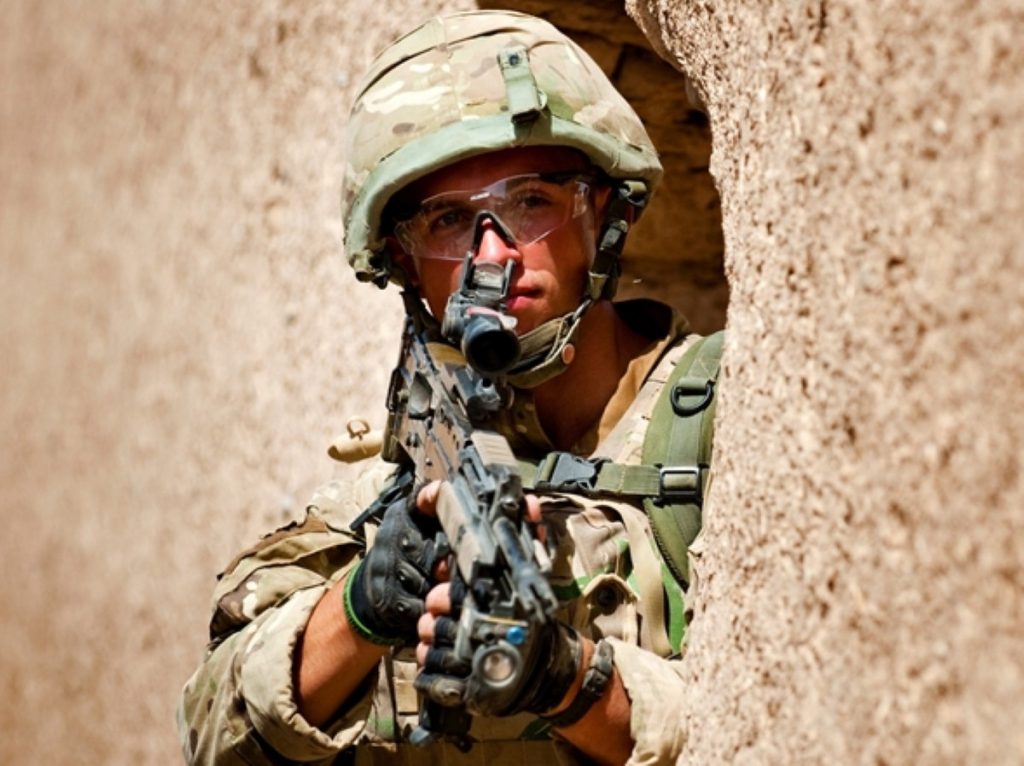Comment: Military spending doesn’t make us safer – but it does make us poorer
By Andrew Smith
For those with a spare £246 to burn (or a military corporation willing to burn it on you) and an interest in arms and conflict, this month's ADS Dinner was the perfect night out.
The dinner, which took place in the Hilton on Park Lane, brought representatives of hundreds of arms companies together with over 40 MPs from across the three main political parties and guest speakers, business secretary Vince Cable MP and the BBC's Jeremy Vine. The champagne was flowing as the black-tie guests indulged in three courses of luxurious food and a long night of 'networking', 'entertaining' and 'relaxing'.
The ADS is not some kind of dispassionate dining club which was hosting the night because it wanted to be nice. It is the trade body for arms companies and is actively lobbying and campaigning for a higher military budget, an increase in arms export promotion and extra government funding for research and development (R&D) for the arms trade.


Unfortunately the arms companies aren't the only ones which are publicly encouraging the government to spend even more on the military. Two former defence ministers, Peter Luff and Bob Ainsworth, have openly lobbied for it. Even Barack Obama has intervened, using the rise of Isis and conflict in Ukraine as a pretext to encourage the UK to continue spending two per cent of its GDP on the military or risk undermining Nato.
Military spending in an age of austerity
All of this rhetoric needs to be put in context. Contrary to the alarmist noises coming from the arms trade lobby, at £37 billion per year the UK actually has the sixth largest military budget in the world. This is before you even take into account all of the extra money that has been found at short notice to fund foreign wars and interventions.
Despite recent cuts, the UK military budget is still far higher than many much bigger countries, such as Brazil or India. It also represents a far higher percentage of national GDP than most European countries. Very often this money is pumped straight into bloated and unnecessary procurement projects like the HMS Queen Elizabeth aircraft carrier and trident missiles.

Iraq and Afghanistan have made military interventions less popular
Does this vast military spending make us any safer? On the contrary, the narrow focus on military strength disregards many of the greater security threats that face us. Unfortunately one of the costs of this has been to overlook many of the underlying drivers of national and international insecurity, such as climate change, cyber-crime and the sustainability and security of our energy sources.
All of these threats are far greater and more immediate than the likelihood of a military strike against the UK, yet none of them are getting anywhere near the same focus and resources. Even the government's last national security strategy (published in October 2010) found that most of our immediate dangers are non-military, ranking the prospect of a military attack on the UK as a third tier threat. However, the spending in no way reflects the identified risks.
Every year the public subsidises arms companies to the tune of hundreds of millions of pounds. BAE Systems, for example, recently managed to secure a £300 million subsidy to build a new submarine facility in Barrow. It also enjoys long-term contracts that guarantee a minimum income of £230 million per year from the public purse.
One factor influencing this outlook has been the close and politically intimate relationship between major arms companies and the government.

Campaigners warn of a revolving door between arms companies and Whitehall
It's a relationship which can be characterised as a revolving door, with a number of high profile examples of senior civil servants and politicians moving into the arms trade. One of the most notable examples is former defence minister Geoff Hoon, who is now the 'head of government affairs' at AgustaWestland, after having given them a £1.7 billion contract while in office.
The issue goes way beyond the choices of a few individuals. It is systemic. Research from The Guardian found senior military officers and MoD officials had received approval for over 3,500 jobs in arms companies between 1996-2012 alone. Furthermore, arms companies regularly have staff seconded to the same government departments which are responsible for buying and selling their wares.
Regardless of who wins the election, what is needed is not five more years of the same. Rather, it is a whole new approach to national security which isn't constantly focused on providing military solutions to all threats and catastrophic military interventions that make us all less safe.
Andrew Smith is a spokesperson for Campaign Against Arms Trade (CAAT). You can follow CAAT at @CAATuk.
The opinions in Politics.co.uk's Comment and Analysis section are those of the author and are no reflection of the views of the website or its owners.












